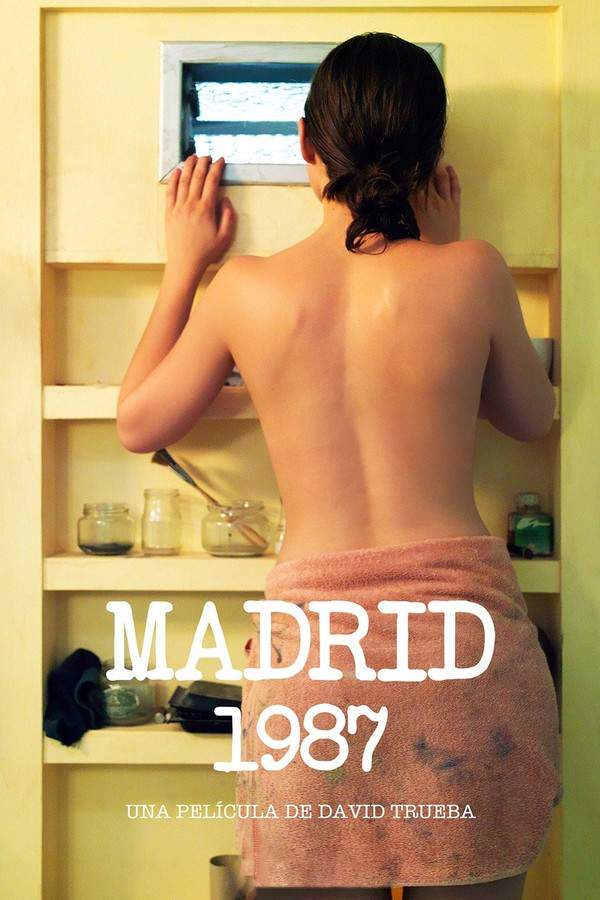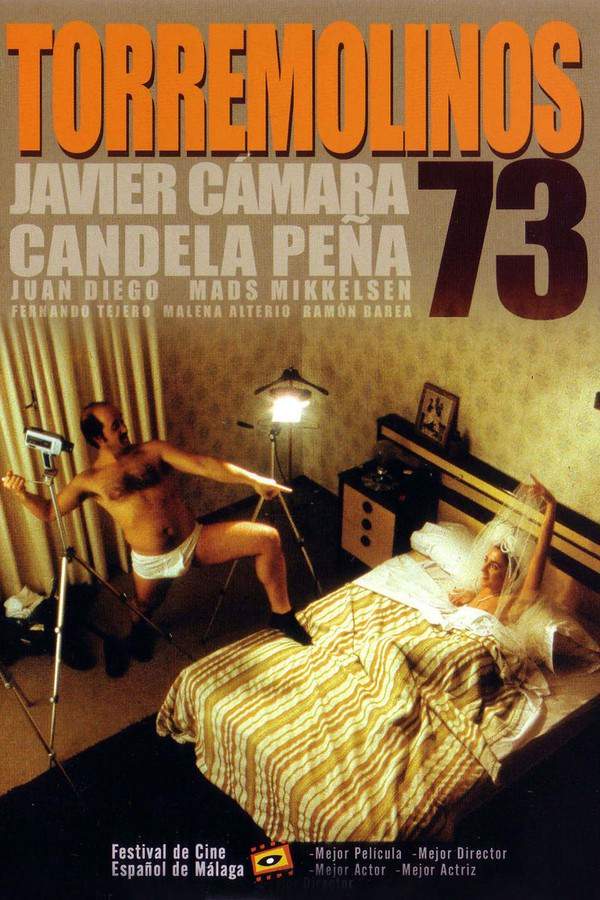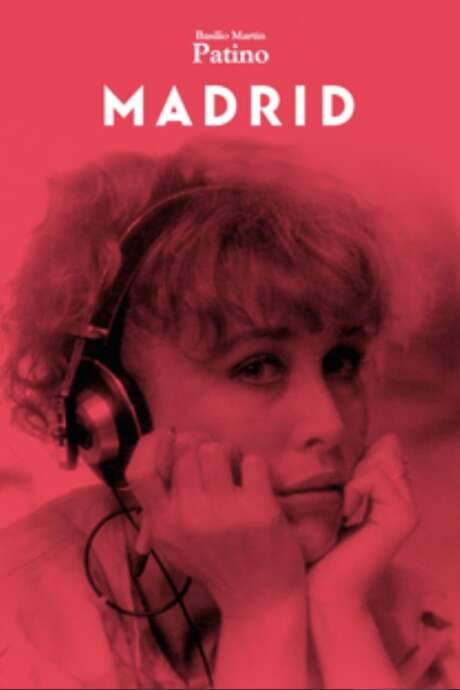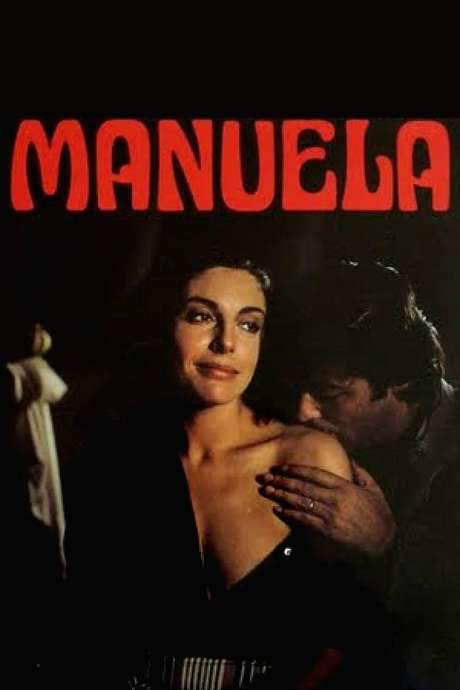Madrid, 1987 2012

In the heat of 1987 Madrid, journalist Miguel finds himself drawn into a complex relationship with the driven student Ángela. Their charged encounters ignite a battle between desire and inspiration, forcing them to confront personal ambitions and the profound societal changes sweeping through Spain as the nation moves beyond the legacy of Franco's dictatorship. They must navigate a landscape of shifting values and personal conflict.
Does Madrid, 1987 have end credit scenes?
No!
Madrid, 1987 does not have end credit scenes. You can leave when the credits roll.
Meet the Full Cast and Actors of Madrid, 1987
Explore the complete cast of Madrid, 1987, including both lead and supporting actors. Learn who plays each character, discover their past roles and achievements, and find out what makes this ensemble cast stand out in the world of film and television.
No actors found
External Links and Streaming Options
Discover where to watch Madrid, 1987 online, including streaming platforms, rental options, and official sources. Compare reviews, ratings, and in-depth movie information across sites like IMDb, TMDb, Wikipedia or Rotten Tomatoes.
Ratings and Reviews for Madrid, 1987
See how Madrid, 1987 is rated across major platforms like IMDb, Metacritic, and TMDb. Compare audience scores and critic reviews to understand where Madrid, 1987 stands among top-rated movies in its genre.

61
Metascore
tbd
User Score


89%
TOMATOMETER

61%
User Score

6.2 /10
IMDb Rating

64
%
User Score

3.2
From 6 fan ratings
Take the Ultimate Madrid, 1987 Movie Quiz
Challenge your knowledge of Madrid, 1987 with this fun and interactive movie quiz. Test yourself on key plot points, iconic characters, hidden details, and memorable moments to see how well you really know the film.
Madrid, 1987 Quiz: Test your knowledge on the complex interactions and themes in 'Madrid, 1987'.
What year does the movie 'Madrid, 1987' take place?
1985
1987
1990
1992
Show hint
Full Plot Summary and Ending Explained for Madrid, 1987
Read the complete plot summary of Madrid, 1987, including all major events, twists, and the full ending explained in detail. Explore key characters, themes, hidden meanings, and everything you need to understand the story from beginning to end.
In the scorching summer of 1987, we meet Miguel, a seasoned journalist who is known for his skepticism, as he encounters Ángela, a spirited journalism student brimming with ambition and idealism. Their first interaction occurs at a local diner, where Ángela seeks to interview Miguel for her essay on his illustrious career, aiming to gather insights from his wealth of experience. Throughout their conversation, Miguel’s contempt for Ángela’s youthful naivety and romanticized view of journalism is stark, as he dismisses much of her work as clichéd. Yet, amidst his harsh criticism, he reluctantly acknowledges her potential.
As the night unfolds, Miguel invites Ángela to visit his friend Luis’ empty house, a gesture she accepts despite her initial hesitations. When they arrive, Miguel casually reveals that Luis won’t return until Monday, allowing them the freedom to engage in uninhibited conversation and enjoy a few drinks. The atmosphere becomes electric as Miguel wanders among Luis’ paintings, making pointed remarks about their flaws, which he believes mirror his own life’s imperfections. Although Ángela protests, Miguel remains steadfast, insisting that Luis would appreciate their imperfections.
As the evening progresses, Miguel alternates between offering jaded advice and mocking romantic ideals associated with journalism, all laced with sharp sarcasm. The effects of whiskey loosen Ángela’s guard, and Miguel begins to peel away the layers of her idealism, exposing a more nuanced individual beneath. Their dynamic shifts dramatically when Miguel removes Ángela’s glasses, locking eyes with her before leaning in for an intense kiss that leaves her initially bewildered but ultimately receptive.
As they near the conclusion of their evening, Miguel’s candid nature is shocking when he provocatively suggests that Ángela strip. Upon her refusal, he asserts that he has always been true to himself, never shrouding his intentions in deceit. Their parting moment grows heavy with Miguel’s bold declaration, “I hope you will one day respect me for my boldness.” The boundaries between mentor and mentee blur as Ángela exits, prompting Miguel to reflect on their complex encounter.
Suddenly, the ambiance shifts as Ángela unexpectedly reenters, this time with her upper body exposed, leaving Miguel momentarily speechless. In a moment of artistic impulse, he begins to paint her, his brushstrokes filled with intent. As she heads to wash off the paint, Miguel follows her into the bathroom, where intimacy and tension intertwine. The shower—a place typically apart from interaction—transforms into a backdrop for their burgeoning connection. Ángela soon finds the door locked from the outside, heightening the sense of entrapment.
Miguel, seeking to relieve the awkwardness of their situation, hands over the only towel, acknowledging their absurd predicament. Together, they wrap themselves in it, resuming their dialogue that oscillates between Miguel’s attempts to charm Ángela and his biting cynicism. A cloud of cigarette smoke and whiskey hangs between them, as Miguel contrasts his preference for solitude against the weight of her company.
As the clock ticks on, anxiety grows over their clandestine stay in the bathroom. Miguel is consumed by thoughts of his wife’s potential fury, while Ángela worries about disappointing her parents. The tension escalates further with the revelation that Ángela is the daughter of a notable fascist soldier, prompting Miguel to recount his own encounters with fascists and his failed flirtations with her sister.
Miguel, initially hesitant to seek help, eventually concedes that they must escape the bathroom. However, when Ángela attempts to call for assistance through the vent, Miguel seizes the moment, his hand tracing her form as she precariously balances on a chair. Though initially compliant, Ángela protests when his actions become too brazen.
In a defiance of boundaries, she wraps the towel around herself, creating a protective barrier. As tension mounts, Miguel shares reflections on literature and life, his soothing voice softening the atmosphere while drawing Ángela closer. When she allows his kiss, the moment is fleeting as he suddenly pulls away, leaving her in a state of confusion.
In the enveloping darkness, Miguel grapples with his conflicted emotions. Sensing his turmoil, Ángela boldly turns off the light and disrobes, signaling a profound intimacy. She positions herself on Miguel’s lap, their bodies inches apart as inhibitions fade; she playfully discards his glasses into the water, symbolizing their shared shedding of restraint. The air crackles with anticipation, building toward a moment of surrender as they intertwine in passion, culminating in a transformative experience for both.
Emerging from their encounter, Miguel and Ángela ease into a warm bath, their conversation shifting from palpable desire to deeper universal connections. However, the comfort is short-lived when Miguel candidly expresses guilt, igniting a spark of anger within Ángela. She chastises him for his self-centeredness, asserting that his insensitive remark will find its way into her essay, a stinging critique they both dread.
As the tension escalates, Miguel attempts to lighten the mood with a whimsical story about a boy who refuses to leave his bed, framing it as if they’re watching a film together. This fanciful narrative unfolds in a cinematic style, encapsulating the boy’s mysterious departure and leaving his parents in consternation about his whereabouts.
Just as Miguel reaches the story’s climax, the unexpected sound of knocking shatters their moment—Luis has returned, alerted by a worried worker who overheard their earlier pleas for help. Ángela hurriedly dresses and exits, casting one last lingering gaze at Miguel before slamming the door behind her. In her haste, she leaves her glasses on the table, an enduring physical reminder of the whirlwind of emotions that transpired.
Luis turns to Miguel with a questioning look, inquiring whether he expects to see Ángela again. Miguel philosophically muses that if she were to return, it would be to Luis’ home. The film concludes with Ángela walking home to her parents amidst a backdrop of laughter and music, the camera panning out to capture the blissful serenity of the neighborhood, leaving her story open-ended in the viewer’s mind.
Uncover the Details: Timeline, Characters, Themes, and Beyond!

Coming soon on iOS and Android
The Plot Explained Mobile App
From blockbusters to hidden gems — dive into movie stories anytime, anywhere. Save your favorites, discover plots faster, and never miss a twist again.
Sign up to be the first to know when we launch. Your email stays private — always.
Watch Trailers, Clips & Behind-the-Scenes for Madrid, 1987
Watch official trailers, exclusive clips, cast interviews, and behind-the-scenes footage from Madrid, 1987. Dive deeper into the making of the film, its standout moments, and key production insights.
Madrid, 1987 Themes and Keywords
Discover the central themes, ideas, and keywords that define the movie’s story, tone, and message. Analyze the film’s deeper meanings, genre influences, and recurring concepts.
Madrid, 1987 Other Names and Titles
Explore the various alternative titles, translations, and other names used for Madrid, 1987 across different regions and languages. Understand how the film is marketed and recognized worldwide.
Similar Movies To Madrid, 1987 You Should Know About
Browse a curated list of movies similar in genre, tone, characters, or story structure. Discover new titles like the one you're watching, perfect for fans of related plots, vibes, or cinematic styles.
Quick Links: Summary, Cast, Ratings, More

What's After the Movie?
Not sure whether to stay after the credits? Find out!
Explore Our Movie Platform
New Movie Releases (2026)
Famous Movie Actors
Top Film Production Studios
Movie Plot Summaries & Endings
Major Movie Awards & Winners
Best Concert Films & Music Documentaries
Movie Collections and Curated Lists
© 2026 What's After the Movie. All rights reserved.






























